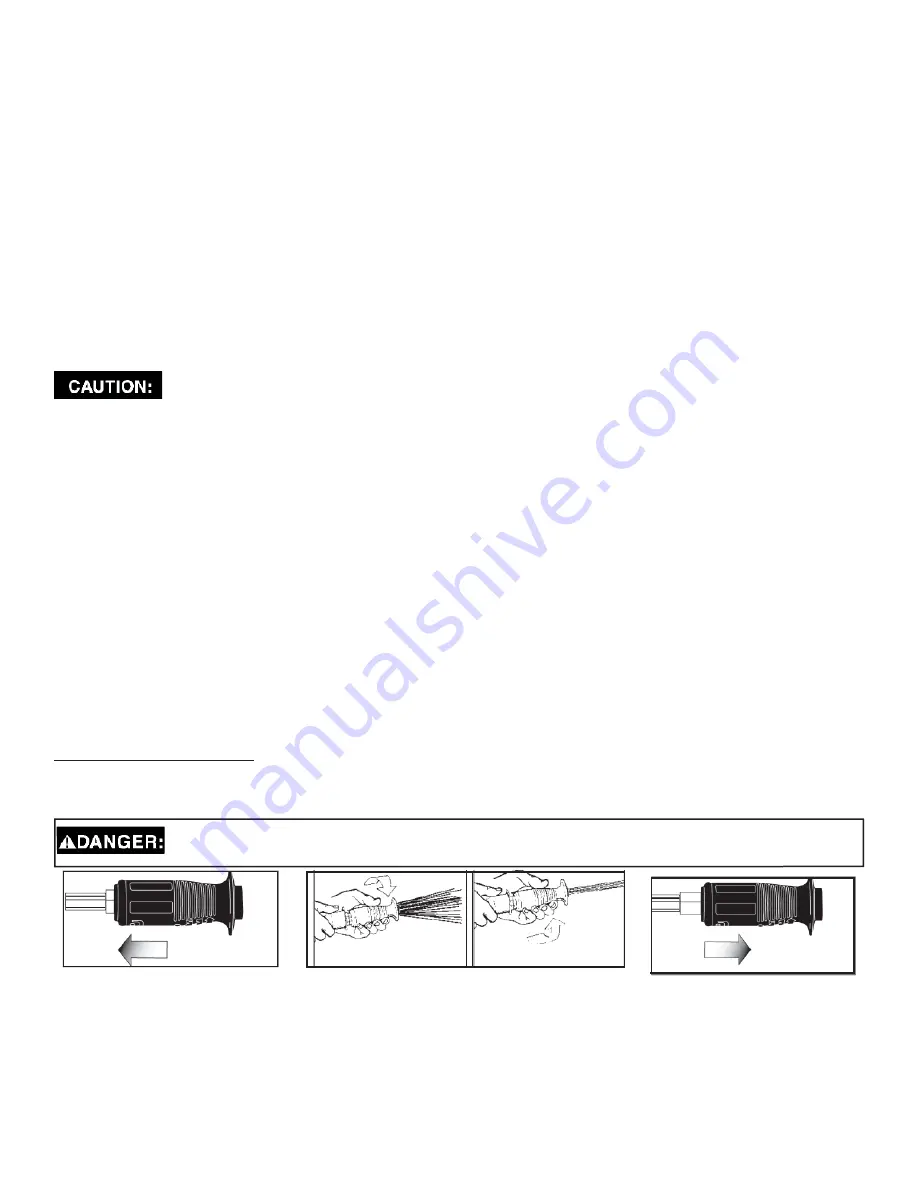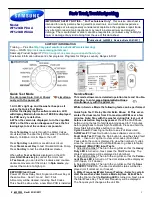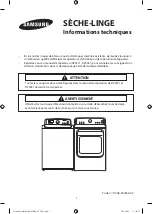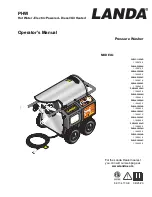
BASIC ELEMENTS OF AN ENGINE
Refer to the engine manual for location and operation of engine controls.
Choke Control:
Opens and closes carburetor choke valve.
Starter Grip:
Pulling starter grip operates recoil starter to crank engine.
Engine Switch:
Enables and disables ignition system.
PRESSURE WASHER TERMINOLOGY
PSI:
Pounds per Square Inch. The unit of measure for water pressure. Also used for air pressure,
hydraulic pressure, etc. Sometimes noted as “Bar”, another unit of measure.
GPM:
Gallons per Minute. The unit of measure for the fl ow rate of water. Sometimes noted as L/min
(Liters per Minute).
CU:
Cleaning Units. GPM multiplied by PSI equals CU.
Bypass Mode:
Allows water to re-circulate within the pump when the gun trigger is not pulled. This
feature allows the operator to release the trigger gun and reposition themselves without having to turn
the engine off in between cleaning actions.
Allowing the unit to run for more than two minutes without the gun trigger being pulled
could cause overheating and damage to the pump. Do not let the pressure washer run for more than
two minutes in Bypass Mode. Turn off the engine and relieve the pressure in the gun during these
extended situations.
Thermal Relief Valve (not shown):
When the temperature inside the pump rises too high, this valve
will open and release a gush of water in an effort to lower the temperature inside the pump. The valve
will then close.
Chemical Injection System:
Mixes cleaners or cleaning solvents with the water to improve clean-
ing effectiveness. Depending on your machine, this could either be a Detergent Siphon Tube (which
is inserted into a container of detergent), or a Detergent Tank (which is fi lled with detergent and is an
integral part of the pressure washer frame).
Water Supply:
All pressure washers must have a source of water. The minimum requirements for a
water supply are 20 PSI and 5 Gallons Per Minute.
PRESSURE WASHER OPERATING FEATURES - SPRAY WAND
Spray Wand:
There are two types of spray wands that can be included with your pressure washer.
Check Carton Contents section of this manual to see which Wand your pressure washer uses.
1) Variable Spray Wand.
This wand includes both high and low pressure settings. The high pres-
sure setting is for cleaning and rinsing, and the low pressure setting is for applying chemicals or
cleaning solutions to surfaces.
For high pressure opera-
tion, pull back the nozzle
of the multi-adjustable
spray wand as shown.
For low pressure opera-
tion and detergent appli-
cation, extend the nozzle
of the variable spray
wand as shown.
The nozzle at the end of the variable
spray wand can be rotated to change
from the high pressure spray pattern
from a 0º pencil stream to a 40º fan
spray, as shown. Markings have been
placed on the nozzle to help you select
the spray pattern.
Risk of fl uid injection. Do not direct discharge stream toward persons, unpro-
tected skin, eyes, or any pets or animals. Serious injury will occur.
10











































